
In a quiet suburban house in north London, Abdul, a 43-year-old accountant, is lying on the beige carpet of his bedroom, writhing in pain. As he mumbles and occasionally screams, another man, who calls himself Abu Issa, sits cross-legged beside him, his hand gently touching Abdul’s temple.
Issa sports a thick, black mid-size beard and is draped in long robes. He is wearing an embroidered skullcap, and carries a tasbih, a small collection of string beads. As Abdul wriggles on the floor, Issa recites passages, known as surahs, from the Qur'an. Between surahs, he tells Abdul he must focus. “You must use all your energy to get rid of the spirits,” he says. “Pray to Allah [the almighty], and he will give you strength to do this.”
Abdul, a short, stocky man of Pakistani heritage, is one of many clients who come to Issa for “ruqyah”, an Islamic spiritual healing ritual that some Muslims believe can remedy both physical and mental illnesses.
Although ruqyah refers to specific prayers recited by Muslims who seek spiritual healing during prayer, it can also refer to physical rituals carried out on those who believe they have been “possessed” or taken over by invisible spirits, known in Arabic as "jinn". Although many Muslims consider jinn to be evil for the most part, Islamic scholars have a complicated definition in which jinn are invisible entities of a separate world, and vary in how they interact with human beings. Where a jinn is considered to have taken over one's mind or body, ruqyah is the procedure by which it is spiritually removed.
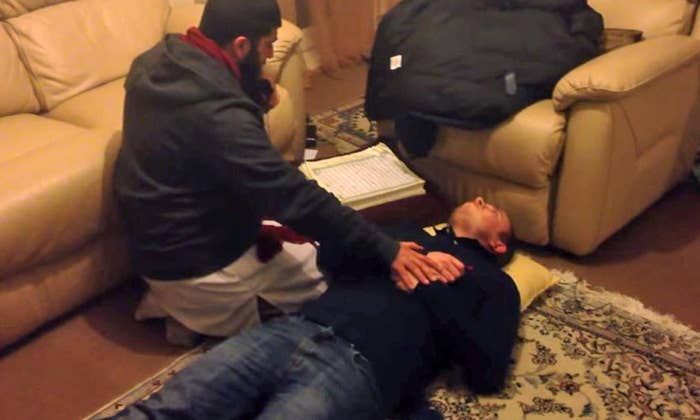
Ruqyah varies in how it is practised, ranging from simple prayers read out by an imam to grand physical rituals that sometimes involve the use of blessed water, ashes, and incense. Because the practice of ruqyah is unregulated in the UK, some in professional medical fields and the wider Muslim community have expressed concern that some Muslims are turning to ruqyah as a way to treat severe mental illnesses.
Moreover, some practitioners – known as “raaqis” – have told BuzzFeed News that an increasing number of people with poor or no training in ruqyah risk putting patients with mental health issues in danger, either by making their conditions worse or by preventing them from seeking professional help early on.
Prominent figures, including Nazir Afzal, the former chief crown prosecutor for the North West of England, have also warned about the “problem” of "self-proclaimed faith healers", especially in situations that could lead to severe violence. Afzal referred to the 2012 murder of Naila Mumtaz, in which four men, including Mumtaz’s husband and brother in law, who were convicted of her killing cited their belief that she was possessed by an evil jinn.
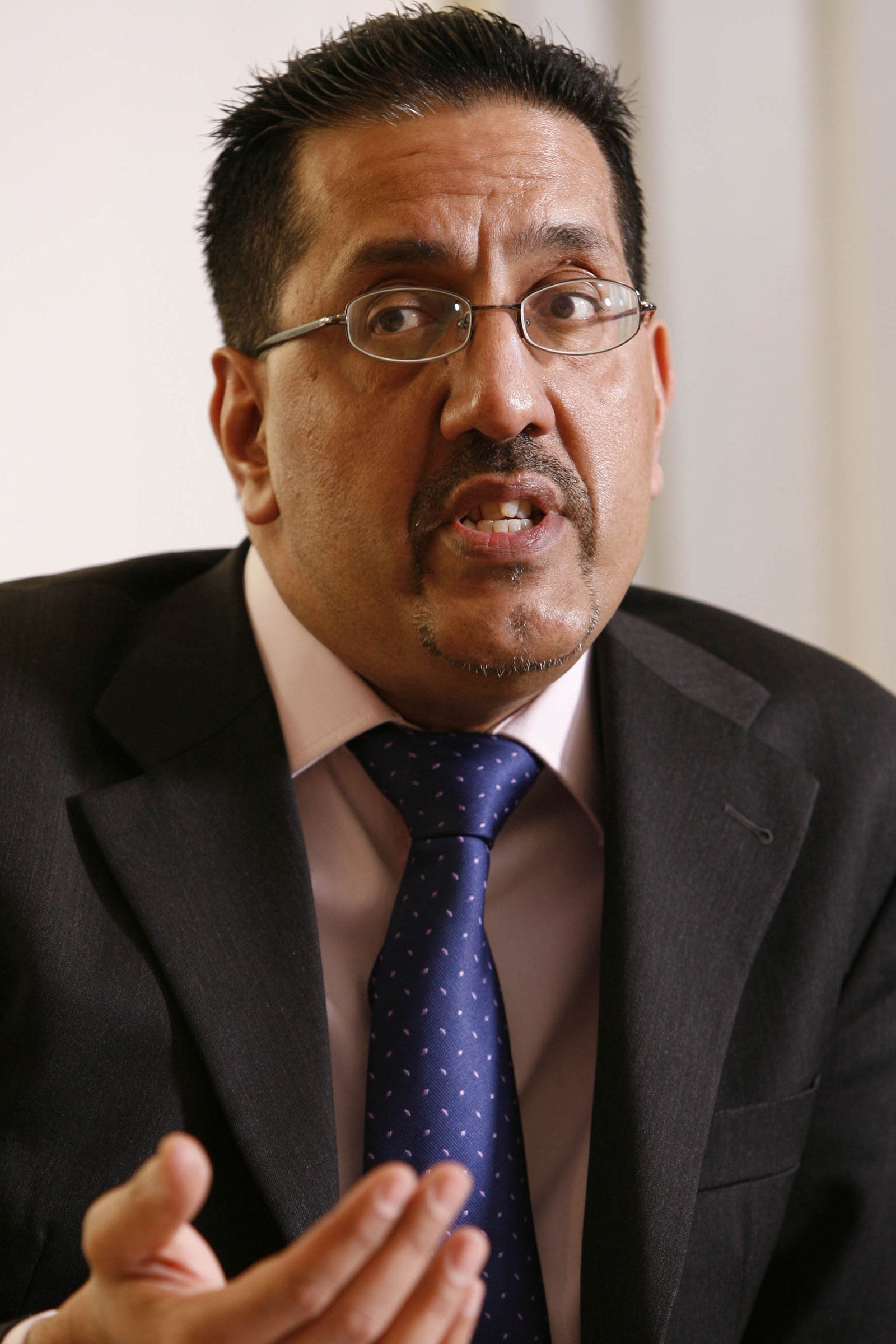
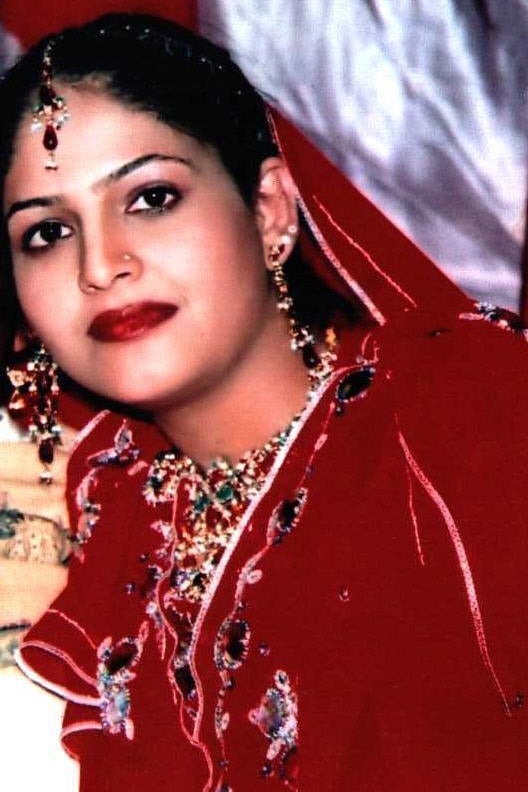
Left: Nazir Afzal, the chief crown prosecutor for the North West of England. Right: Naila Mumtaz.
Speaking after his ruqyah session, Abdul told BuzzFeed News he was diagnosed with depression three years ago and prescribed strong antidepressant medication by his local doctor. “The depression crept on me very suddenly," he said. "I remember just one day feeling like this giant weight had been placed on my back… It just wouldn’t go away. There would be days when I’d spend most of it crying for no reason. And at night, I’d experience these nightmares that would always feature demons.”
When BuzzFeed News asked whether this improved when he took his medication, Abdul said no, it had made his mental state worse. “The medicine just messed around with my head," he said. "It started making me see things that weren’t there, it would make me hear voices in my head … I realised the medicine wasn’t working, and that the problem was actually something else.”
Abdul said that after consulting his imam at the local mosque and speaking to members of his family, he was convinced the problem was supernatural. “When you have voices in your head telling you to stop praying or to do anything that disobeys Allah, you know the problem is more than just psychological,” he said, adding: “Since I’ve been seeing the raaqi, I’ve felt much better and happier.”
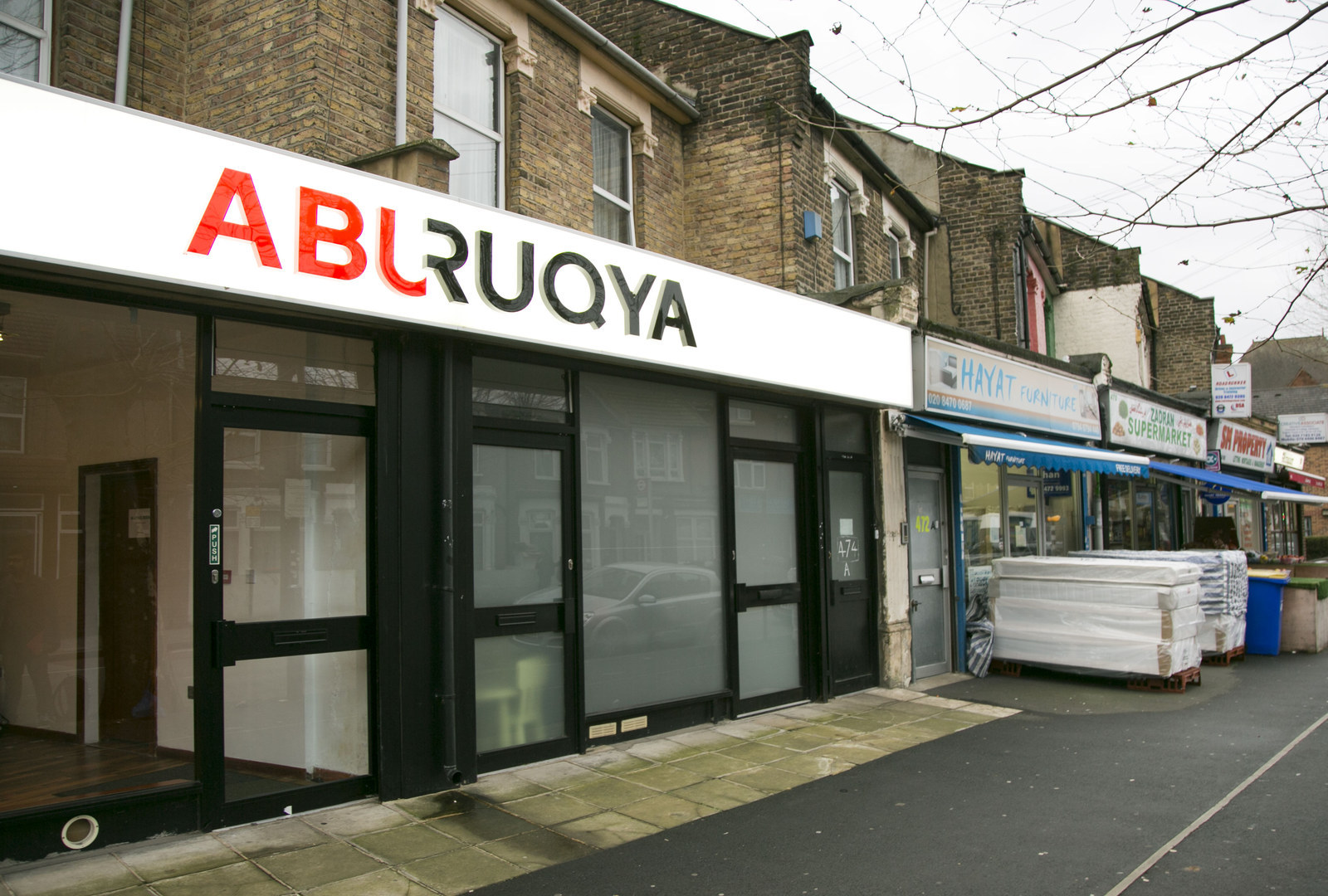
Because of the lack of information on how many people visit faith healers in the UK, BuzzFeed News was unable to determine how widespread raaqis are across the country or how many people opt to visit them rather than mainstream mental health practitioners. Some raaqis, who did not want to be named, told BuzzFeed News they estimate there could be up to 10,000 in Britain.
Though most raaqis in the UK practise individually, usually meeting clients in mosques or at their homes, there are some who run specialist centres. One of the UK's largest is the Abu Ruqya centre in east London, which claims to have treated hundreds of people who have been "possessed by jinn" and other forms of black magic.
Although the centre's owner, who goes by the Islamic name Abu Ruqya, declined to be photographed or formally interviewed by BuzzFeed News, he claimed to be one of the country's most respected raaqis, and said he had helped cure people who "had illnesses...mental and physical health issues that doctors were unable to fix". Though Ruqya did not cite his practice as an alternative to professional medical care in regards to mental health, the centre's website says it treats those who are "unaware they have a spiritual affliction".
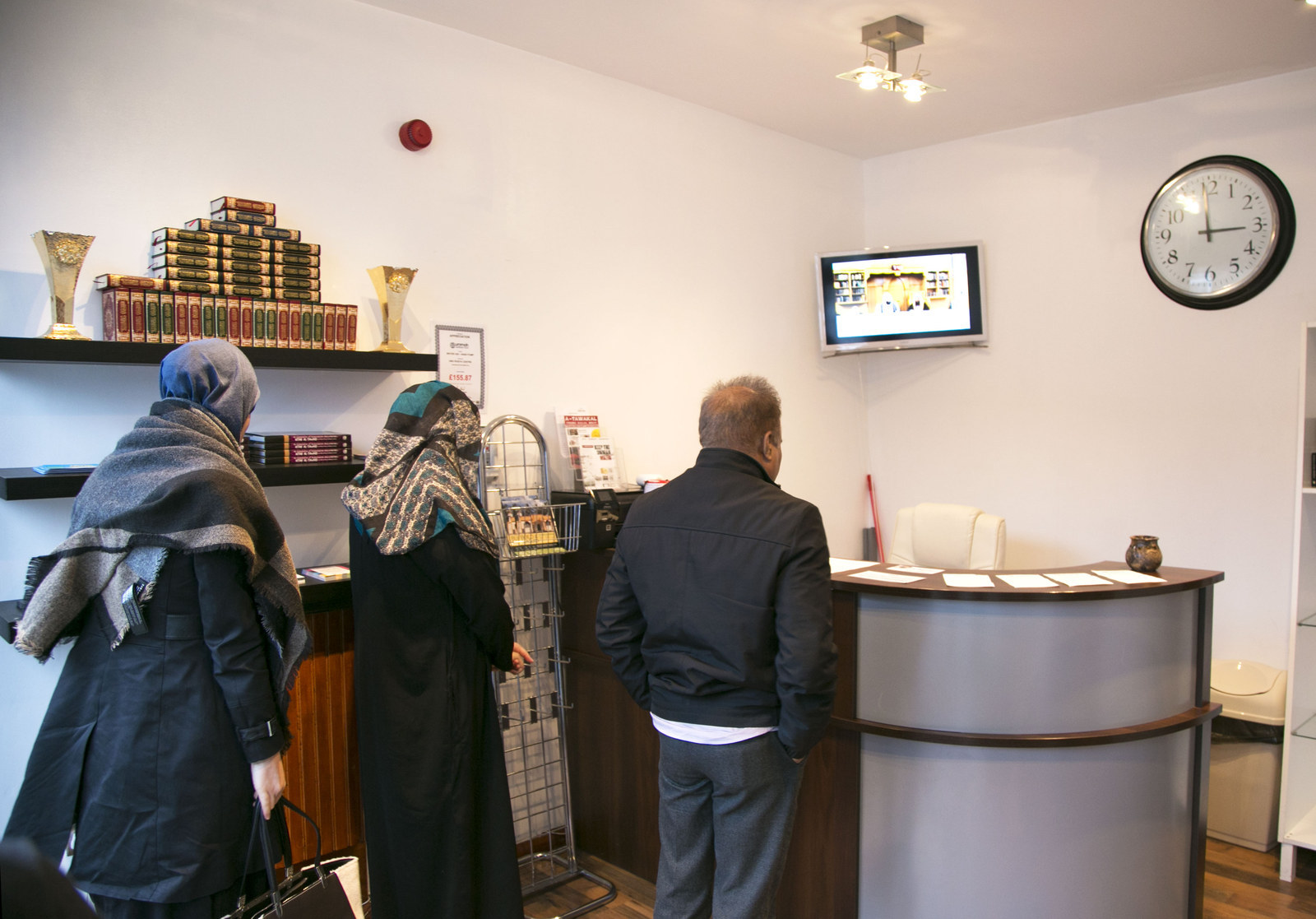
According to Professor Swaran Singh, head of mental health and wellbeing at Warwick Medical School, a majority of people in some religious communities in the UK seek help from faith healers.
Singh told BuzzFeed News the type of faith healing varied between communities, but in some instances it was being chosen over mainstream mental health care.
“It’s not a small minority of Muslims that seek faith healing," he said, "and according to our research conducted last year, not all of them experienced bad things as a result. It’s worth noting that this type of treatment varies a lot between people who administer it. Sometimes you’ll have imams who recite Qur'anic passages to soothe people. On the other hand, you’ll have people who are unqualified, performing dangerous rituals on people with significant problems.
"[Ruqyah] and other faith healing should not be considered as a treatment. We found that although it was providing comfort, in some cases it was getting in the way of seeking actual medical treatment … and in the long term, that could be very dangerous.”
But another issue some have raised with ruqyah is the lack of regulation – something that practitioners of other religious therapy rituals highlighted earlier this year. As a result, some have warned that vulnerable people are susceptible to being exploited, or worse, not treating severe medical conditions until it is too late.
Yusuf Ali, a well-known raaqi in Luton, Bedfordshire, who claims to have studied ruqyah for nearly a decade, told BuzzFeed News that the lack of regulation over who can practise ruqyah is a growing problem affecting Muslim communities.
“Some of these Muslim communities lack knowledge about mental health," he said. "It’s a fairly new topic for most people, but you still have some families worried that if their daughter has a mental health issue that needs medication, it might end her marriage prospects, or affect the family’s reputation in their communities. So sometimes you’ll see families with children who have major depression or severe schizophrenia, and they’ll put it down to a curse or an evil jinn. In those cases I’d say that they would need to go see a specialist."
Ali added: "I know of other people who claim to be raaqis, who won’t say anything because they just want to make some money.” He believes that a better method of vetting raaqis is required, and that it would also need to involve being more open to talking about mental health. “Things are getting better across the UK, alhamdulillah, but we still don’t talk a lot about mental health in the context of Islam. We talk a lot about spiritual health, so that might lead people to view a mental health problem as a spiritual health problem.”
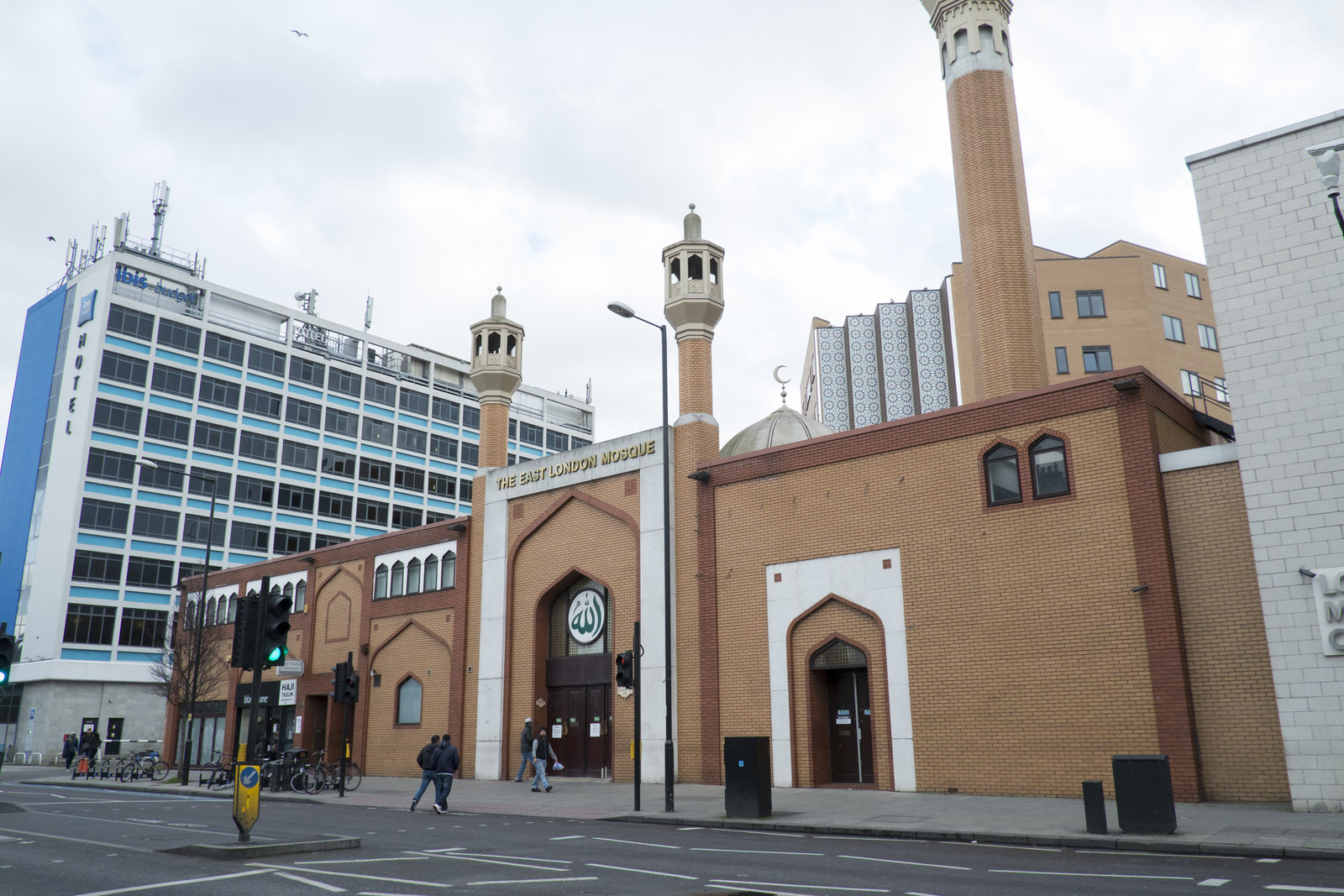
Like many raaqis in the UK, Issa carries out ruqyah part-time (his day job is as an IT consultant). He told BuzzFeed News that he had learnt how to carry out the rituals while living in the Middle East, learning from scholars in Saudi Arabia, Jordan, and Syria. Though he primarily works in the UK, he does not have to answer to any professional body.
He’s aware that some might consider his practice to be dangerous. “The issue in the UK is that we have a secular medical system, which doesn’t account for the spirituality of the individual,” he said in a telephone interview. “I’m not against professional medical treatment – there are many Muslim doctors who work in the field of mental health who will tell you that you can marry spiritual and physical wellbeing, and that ruqyah, which is something that is intrinsic to the belief of many people, can complement traditional medical treatment.” He insisted that he’s successfully treated individuals diagnosed with severe depression, anxiety, eating disorders, and even suicidal ideations.
But Issa admitted that there is a grey area between medical and nonmedical treatment, which, particularly in the case of mental health, can put some patients at risk.
He cited several cases where raaqis have allegedly extorted money from patients, including one family whose daughter was discovered to be self-harming, and another instance where a man with schizophrenia spent two years seeing a spiritual healer in the belief he was possessed by evil spirits, before eventually seeking professional medical help.
“Raaqis don’t have to answer to any official body," he said, "which means they hold the responsibility to judge whether they should treat patients. ... As a rule, I will not treat people who evidently have severe mental illnesses, the ones who need medicinal treatment."
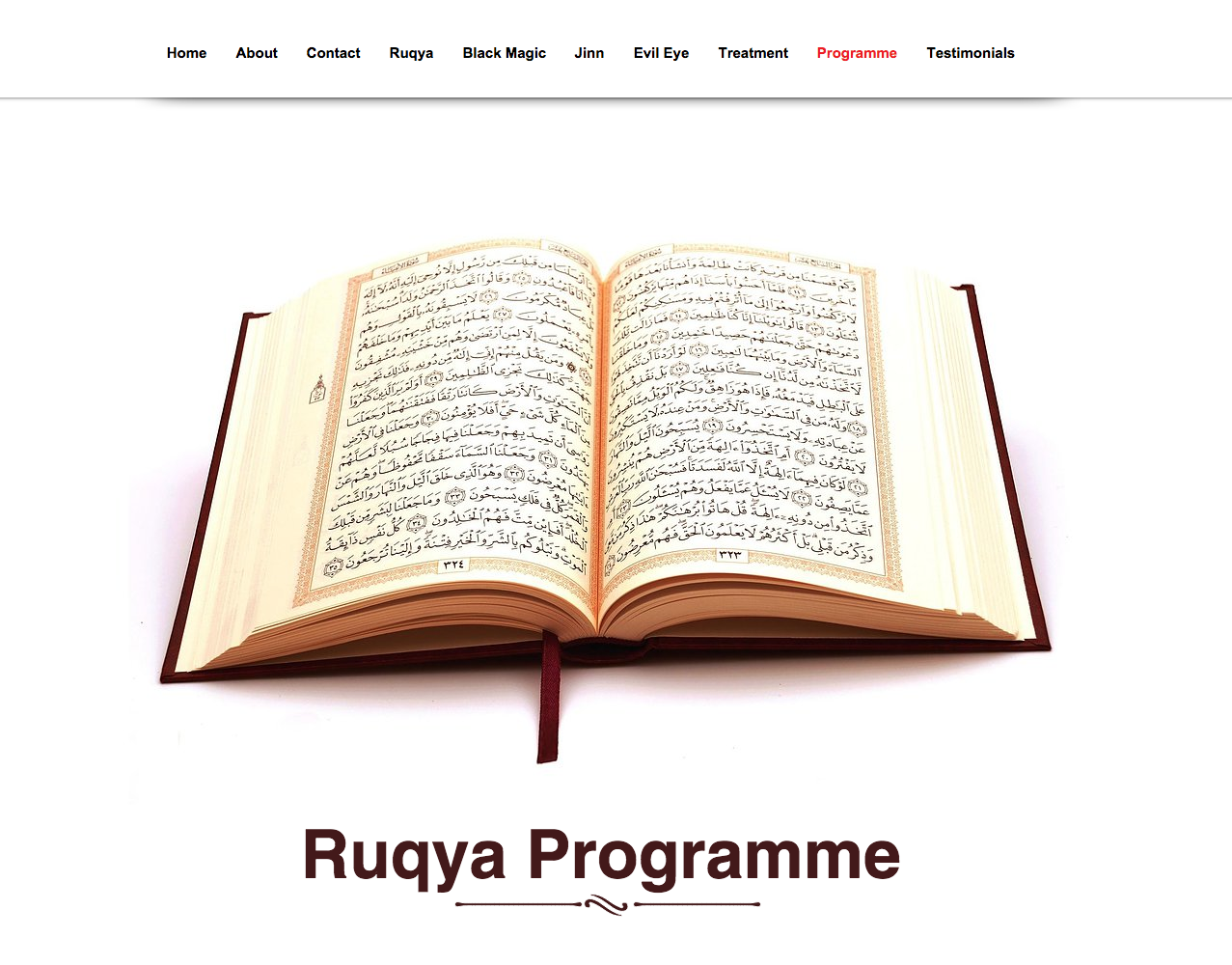
But why do some Muslims in Britain have more faith in spiritual healers than they do in mainstream mental health services?
Dr Hashim Reza, consultant psychiatrist at the Oxleas NHS Foundation Trust, said that part of the reason is to do with distrust among many Muslim communities of mental health services in the UK.
“Some Muslim communities in the UK do come from cultures where belief in jinn and the supernatural are commonplace," he said. "But the bigger issue might be the lack of Muslim representation in mental health services. So there isn’t much of an incentive for Muslims who might have a mental health illness, or who know someone who does, to go and speak to someone about it."
He added: “This is more about the stigma around mental health, in which the danger of bad ruqyah practice is only part of it." While ruqyah is unlikely to fade out in the near future, Reza said, there should be more importance placed on getting more Muslim communities involved in shaping existing mental health services: “Muslim communities need to know they can trust how their service runs and who is running them … That requires a lot of effective communication so that they know about mental health just as much as they know about physical wellbeing.”
Other organisations, including the Centre for Mental Health (CMH), believe that flaws in how mental health services are structured can lead to the alienation of black and minority ethnic (BME) communities, sometimes allowing alternative methods of treatment to fill the void.
“There’s a real lack of research in how mental health services in the UK affect ethnic minorities, which is part of the reason why some services don’t benefit them,” Andy Bell, deputy chief executive of the CMH, told BuzzFeed News.
“Our research shows that in some areas of mental health, such as coerced services, black and Caribbean people tend to be more affected – for example in sectioning. In other, softer approaches to mental healthcare and rehabilitation, they are largely under-represented. ... As a result, we know fairly little about the attitudes toward mental health care from within BME communities."
Bell added that while any form of healthcare does carry dangers, the government needs to do more to engage minority communities, including religious ones: “It’s important to build bridges between communities – that’s the first priority. And that might mean working with individuals such as spirit healers, in order to help the most vulnerable in these communities.”
It’s a statement that Abdul, the client in north London, agrees with. The following week, shortly before his next session, he told us he felt mainstream mental health services failed to understand his condition, saying doctors “dismissed the spiritual side of the problems. … I think that if they respected my religious beliefs, then I would have had more faith in them. It was my lack in faith in the doctors that stopped the treatment from working.”

